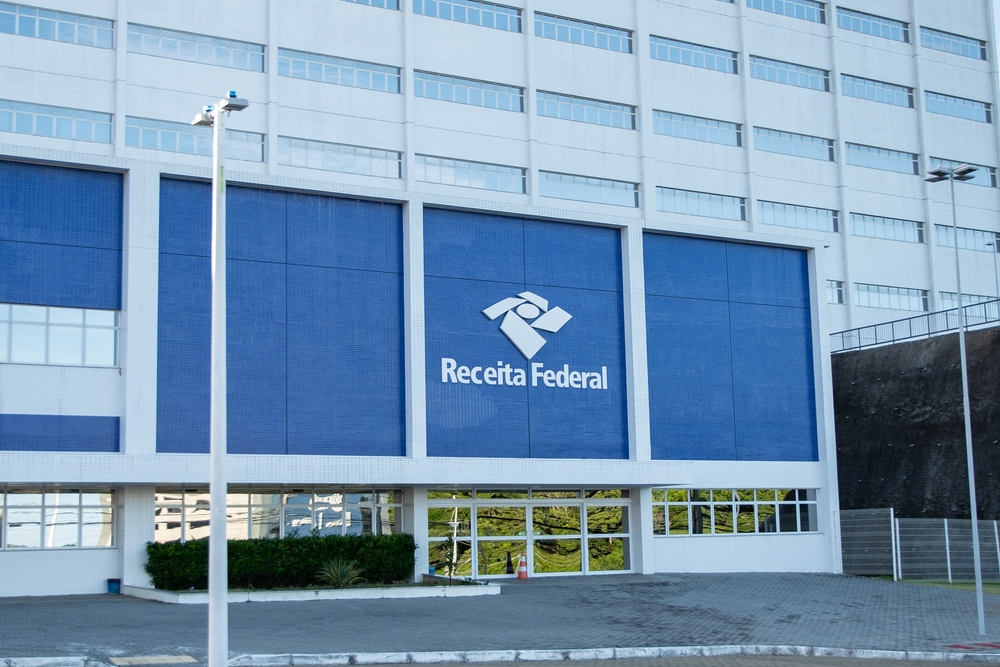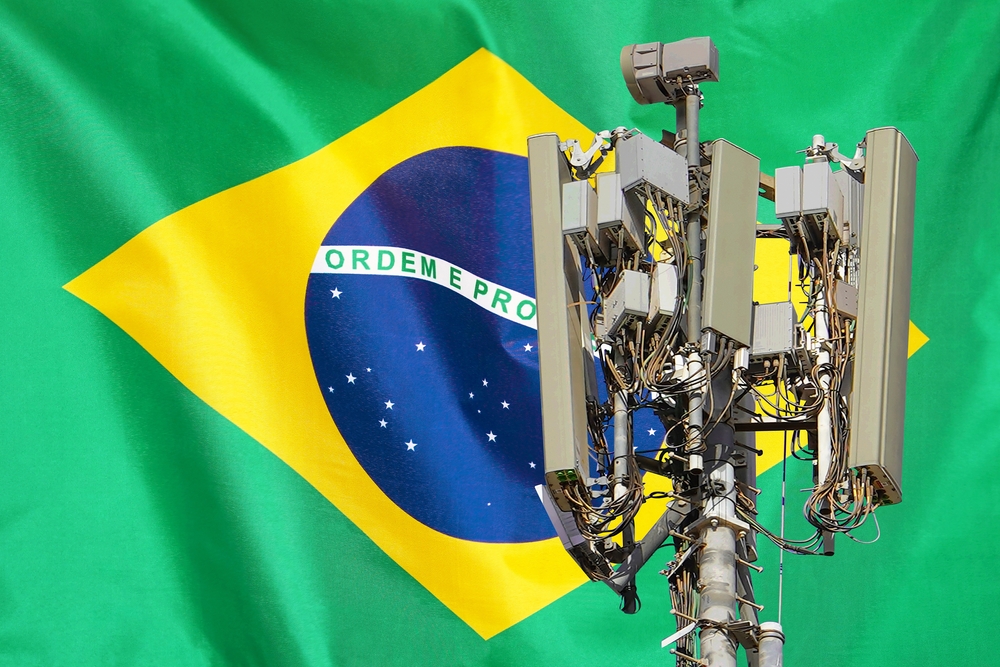Table of Content
ToggleIntroduction
The Receita Federal, also known as the Federal Revenue of Brazil, plays a crucial role in the country’s financial system. It is the government agency responsible for collecting taxes, managing customs, and overseeing trade control. The Receita Federal is Brazil’s equivalent of the Internal Revenue Service (IRS) in the United States, handling tax collection and administration at the federal level.
The agency’s full name is Secretaria Especial da Receita Federal do Brasil, which translates to Special Secretariat of the Federal Revenue of Brazil. It operates under the Ministry of Economy and has a wide range of responsibilities. These include administering income taxes on both individuals and legal entities, enforcing tax laws, and combating tax evasion.
Brazil’s tax system is complex, and the Receita Federal works to ensure compliance and fairness. The agency also manages customs operations, controls international trade, and collects import and export duties. Its role extends to providing public services and support to taxpayers, as well as collaborating with international partners on tax-related matters.
Key Takeaways
- The Receita Federal is Brazil’s federal tax collection and customs agency.
- It administers taxes, manages customs, and oversees trade control in Brazil.
- The agency works to ensure tax compliance and provides services to taxpayers.
Overview of the Receita Federal
The Receita Federal do Brasil (RFB) is Brazil’s tax collection agency. It manages federal taxes and customs duties, playing a key role in the country’s financial system.
Roles and Responsibilities
The RFB, also known as the Federal Revenue Department, has several important duties. It collects federal taxes and monitors tax compliance. The agency also oversees customs operations at Brazil’s borders and ports.
The RFB fights tax evasion and combats financial crimes. It works to ensure fair tax practices across the country.
The agency manages tax policies and provides information to taxpayers. It issues tax ID numbers and handles tax refunds for individuals and businesses.
History and Development
The Receita Federal was created in 1968 to modernize Brazil’s tax system. It merged several existing tax departments into one unified agency.
Over time, the RFB has expanded its role and capabilities. In 2007, it became the Special Department of Federal Revenue of Brazil, taking on additional customs duties.
The agency has embraced technology to improve its services. It introduced electronic tax filing systems and digital customs procedures. These changes have made tax compliance easier for Brazilian citizens and businesses.
The RFB continues to evolve, adapting to new economic challenges and working to improve fiscal responsibility in Brazil.
Organization Structure
The Receita Federal in Brazil has a complex organizational structure to manage tax collection and customs duties across the country. It consists of main divisions at the national level and regional offices spread throughout Brazil.
Main Divisions
The Receita Federal’s main divisions are based in Brasília, the capital city. These divisions oversee different aspects of tax administration and customs control. The Ministry of the Economy supervises the Receita Federal’s operations.
Key divisions include:
- Tax Administration
- Customs Control
- Taxpayer Services
- Information Technology
- Human Resources
Each division has specific responsibilities and works together to ensure smooth operations of the tax system.
Delegacias and Inspetorias
The Receita Federal extends its reach through regional offices called Delegacias and Inspetorias. These offices handle local tax matters and customs operations.
Delegacias are larger regional offices that manage tax collection and audits in their areas. They also house Delegacias de Julgamento, which are administrative courts that resolve tax disputes.
Inspetorias are smaller offices often located at border crossings, ports, and airports. They focus on customs control and international trade regulations.
This structure allows the Receita Federal to maintain a presence across Brazil’s vast territory and efficiently manage tax and customs matters at both national and local levels.
Taxation System in Brazil
Brazil has a complex tax system with various types of taxes collected at federal, state, and municipal levels. The system uses unique identifiers for individuals and businesses to track tax obligations and payments.
Types of Taxes Collected
Brazil collects several types of taxes. The main federal taxes include Income Tax (IRPF), Social Security Contributions, and Corporate Income Tax.
State governments levy Value Added Tax (ICMS) on goods and services. Municipalities collect taxes on services (ISS) and property (IPTU).
Some taxes in Brazil are progressive, meaning rates increase as income rises. The Income Tax uses a progressive tablewith different rates for various income brackets.
CPF and CNPJ
CPF (Cadastro de Pessoas Físicas) is a unique identifier for individuals in Brazil. CNPJ (Cadastro Nacional da Pessoa Jurídica) is for businesses and legal entities.
These numbers are crucial for tax purposes. The CPF is used for personal tax filing, while the CNPJ is used for business taxes.
Both CPF and CNPJ are required for many financial transactions in Brazil. They help the Receita Federal track tax compliance and prevent fraud.
Tax Rules and Regulations
Brazilian tax laws are complex and frequently updated. The Receita Federal oversees tax collection and enforcement at the federal level.
Individuals must file annual income tax returns (IRPF) if they meet certain income thresholds. Deductions are available for expenses like healthcare and education.
Businesses face various tax obligations depending on their size and industry. The Brazilian tax system allows for specific deductions and incentives to encourage certain economic activities.
Social Security Contributions are mandatory for both employers and employees. These funds support Brazil’s social welfare programs.
Customs and Trade Control
The Receita Federal oversees Brazil’s customs operations and trade control systems. It manages imports, exports, and prevents illegal activities at the country’s borders.
Customs of Brazil
The Receita Federal’s customs division regulates the flow of goods in and out of Brazil. It collects taxes on imports and checks that all items meet legal requirements. Customs officers inspect cargo, verify documents, and ensure compliance with trade laws.
They also work to stop smuggling and drug trafficking. These efforts protect Brazil’s economy and public safety. Customs uses advanced technology and risk assessment to target suspicious shipments.
SISCOMEX
SISCOMEX is Brazil’s integrated foreign trade system. It streamlines import and export processes. The system connects government agencies, traders, and banks.
SISCOMEX allows for electronic submission of trade documents. This speeds up customs clearance and reduces paperwork. It also helps authorities track goods and detect illegal activities.
The system is crucial for Brazil’s efforts to combat piracy and counterfeit goods. It provides data that helps identify high-risk shipments for inspection.
Enforcement and Compliance
The Receita Federal plays a key role in enforcing tax laws and monitoring illegal activities in Brazil. It uses various tools and strategies to combat tax evasion and track illicit financial flows.
Combatting Tax Evasion
The Receita Federal works hard to stop people from avoiding taxes. It checks tax returns closely and does audits to catch cheaters. The agency uses computer systems to spot odd patterns that might mean tax fraud.
Incentives help boost tax compliance in some areas. For example, the Receita Certa project got more citizens to ask for receipts. This made it harder for businesses to hide sales.
The Receita Federal teams up with other parts of the government too. It shares info with the Ministry of Finance to find big tax dodgers. Strict fines and penalties await those who break Federal Tax rules.
Monitoring of Illicit Activities
Beyond taxes, the Receita Federal watches for illegal money moves. It tracks smuggling, piracy, and drug trafficking cash flows. The agency uses high-tech tools to spot suspicious bank transfers.
At borders and ports, Receita Federal agents check for smuggled goods. They work with police to catch criminals moving illegal items. The agency also hunts for fake products to stop piracy.
Cooperative compliance programs help honest businesses follow the rules. These build trust between companies and tax authorities. The goal is to make it easier to obey the law while catching real criminals.
Technology and Modernization
The Receita Federal do Brasil (RFB) has embraced technology to improve its operations. This has led to better tax collection and easier processes for citizens.
E-Government Initiatives
The RFB has implemented several e-government programs to modernize its services. One key initiative is the online CPF Number system. The CPF (Cadastro de Pessoas Físicas) is a unique tax ID for individuals in Brazil.
Citizens can now apply for, update, or check their CPF status online. This has made the process faster and more convenient.
The RFB has also created digital platforms for tax filing and payments. These tools allow taxpayers to submit forms and pay taxes from their computers or smartphones.
Automation and Data Analysis
The RFB has invested in advanced technology to automate many of its processes. This includes using artificial intelligence and machine learning to detect tax fraud.
Data analysis tools help the RFB spot trends and identify potential issues. This allows them to focus their efforts on high-risk cases.
The agency has also improved its information sharing with other government departments. This helps create a more complete picture of each taxpayer’s situation.
These tech upgrades have made the RFB more efficient. They can now process tax returns faster and provide better service to Brazilian citizens.
Public Services and Support
The Receita Federal provides essential services and resources to help Brazilian taxpayers. It offers assistance programs and educational materials to make tax compliance easier.
Taxpayer Assistance
The Brazilian Federal Revenue Service runs help centers across the country. These centers give face-to-face support for tax questions. People can get help with their CPF (individual taxpayer number) or file tax returns.
The Receita Federal also has a phone hotline. Taxpayers can call to ask about tax laws or get help with forms. The wait times are usually short during non-peak periods.
Online chat support is available on the Federal Revenue Department website. This option is good for quick questions. Chat agents can help with basic tax issues or direct people to the right resources.
Educational Resources
The Receita Federal creates easy-to-read tax guides. These explain tax rules in simple terms. The guides cover topics like income tax, business taxes, and import duties.
Video tutorials are posted on the tax agency’s YouTube channel. These show how to fill out common tax forms step-by-step. The videos use clear examples to explain tricky concepts.
The Federal Revenue Department hosts free tax workshops. These in-person classes teach people about new tax laws. Attendees can ask questions and get hands-on practice with tax software.
An online learning portal offers self-paced tax courses. These cover both basic and advanced topics. People can earn certificates to show they completed the training.
International Cooperation and Agreements
The Receita Federal, also known as the Brazilian Federal Revenue Service, takes part in many international agreements. These deals help Brazil work with other countries on tax matters.
One key area is sharing tax information. The Receita Federal exchanges data with tax agencies abroad to fight tax evasion. This allows them to track money moving between countries.
Brazil has signed agreements with several nations to avoid double taxation. These treaties make sure companies don’t pay taxes twice on the same income in different countries.
The Receita Federal also works on customs cooperation. They team up with other countries to:
• Stop smuggling • Catch counterfeit goods • Speed up legal trade
In recent years, Brazil has moved away from traditional bilateral investment treaties. Instead, they now prefer Cooperation and Facilitation Investment Agreements. These focus more on promoting investment between countries.
The Receita Federal takes part in global tax forums too. They work with groups like the OECD to set international tax standards. This helps make sure Brazil’s tax system fits with global norms.
Frequently Asked Questions
The Receita Federal in Brazil handles various tax-related services and registrations. It plays a key role in managing the country’s tax system and providing essential documentation for individuals and businesses.
How can I obtain a CPF number in Brazil?
To get a CPF (Cadastro de Pessoas Físicas) number, visit a Receita Federal office or apply online. You’ll need to provide identification documents and proof of residence. The process is free for Brazilian citizens and residents.
What services does the Federal Revenue of Brazil provide?
The Receita Federal offers tax collection, auditing, and customs services. It also handles the issuance of CPF and CNPJ numbers, tax declarations, and provides information on tax laws and regulations.
How do foreigners pay taxes in Brazil?
Foreigners living in Brazil must obtain a CPF number and file annual tax returns. They pay taxes on income earned in Brazil and may need to report foreign income. The Receita Federal provides guidance on tax obligations for non-residents.
What is the role of the Ministry of Finance in relation to the Federal Revenue in Brazil?
The Ministry of Finance oversees the Receita Federal. It sets fiscal policies and works with the Receita Federal to implement tax laws and manage the country’s financial resources.
How can a business obtain a CNPJ number in Brazil?
To get a CNPJ (Cadastro Nacional da Pessoa Jurídica) number, businesses must register with the Receita Federal. This involves submitting company documents, proof of address, and information about the company’s structure and activities.
What is the structure of the tax system administered by the Federal Revenue in Brazil?
The Brazilian tax system includes federal, state, and municipal taxes. The Receita Federal manages federal taxes such as income tax, social security contributions, and import duties. It also coordinates with state and local tax authorities.











